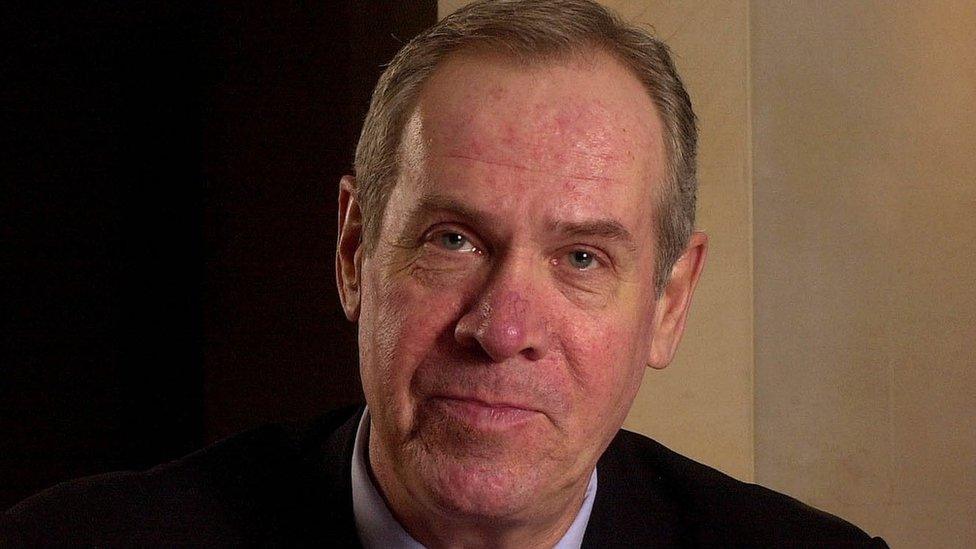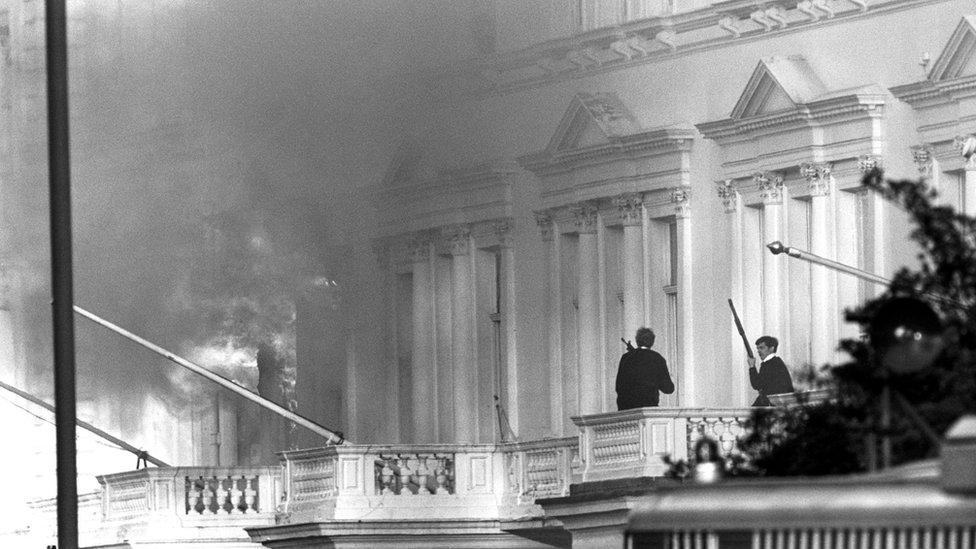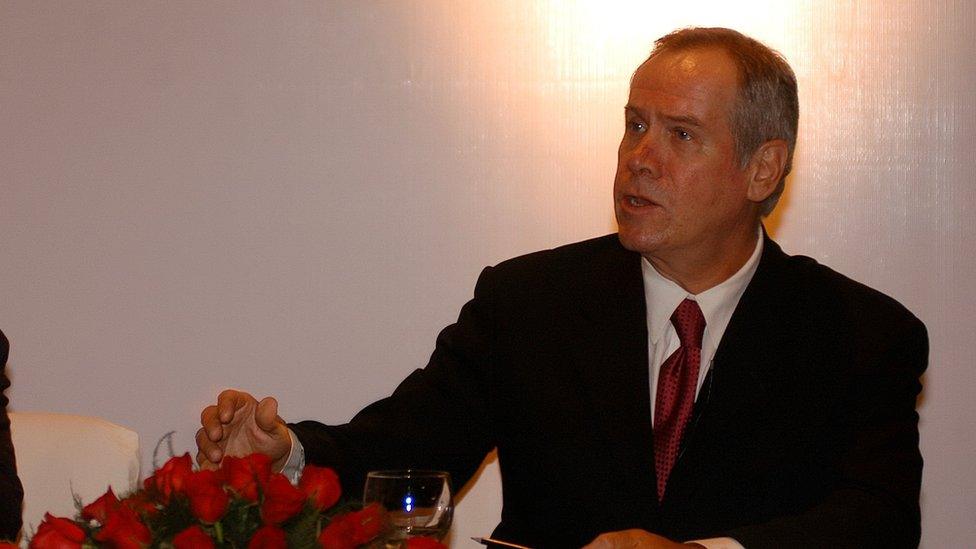Chris Cramer: Tributes paid after former BBC and CNN journalist dies aged 73
- Published

Chris Cramer, a major figure in BBC News and later CNN International, has died at the age of 73 after a period of ill health. Former BBC director of news Richard Sambrook looks back at his life.
Chris Cramer's legacy will be the major change in attitudes and support for journalist safety he championed through the BBC and across the wider industry, as well as many achievements in newsgathering and international news.
He began his career as a teenager on the Portsmouth Evening News, moving to BBC Radio Solent when it launched in 1970.
After a year's secondment in Brunei he found his way to the BBC TV Newsroom in the 1970s and developed his reputation as a highly competitive and effective news editor and field producer.
In 1980 he and a BBC team were in the Iranian Embassy in London collecting visas when it was seized by gunmen opposed to Ayatollah Khomeini. A standoff and siege followed, with Chris among 26 hostages.
He managed to feign serious illness and was released by the gunmen allowing him to give vital information to the authorities before the SAS stormed the embassy and rescued the hostages.
At a time when no-one understood or spoke of PTSD, it had a marked effect on his life.

Armed police on the adjoining balcony to the Iranian Embassy during the siege in 1980
Many journalists and crew subsequently spoke of his care and attention when they had difficult experiences and he went on to drive major changes in understanding and support for journalists' safety.
With BBC Safety manager Peter Hunter, Chris introduced the first hostile environment training courses, risk assessments and equipment for those covering conflicts.
Former correspondent Martin Bell recalls: "From Vietnam to Croatia I had covered 10 wars without protection. Then in June 1992 we were shot up crossing the airport runway in Sarajevo in a soft-skinned vehicle. Within two weeks Chris had procured our first armoured Land Rover, the redoubtable 'Miss Piggy', and the body armour to go with it."
He later introduced the first confidential counselling service for news teams, recognising PTSD, and helped found the International News Safety Institute, which spearheaded safety across the news industry.
During the 1980s he was at the forefront of organising and overseeing major news coverage, including Michael Buerk's reporting from the Ethiopian famine, coverage of the IRA Brighton bomb attack on the British government, the Zeebrugge ferry disaster, Kate Adie's reporting from Tiananmen Square, the fall of eastern Europe, the first Gulf War and many more major events.
His fierce competitiveness delivered a series of major exclusives and awards for BBC News.
Allow X content?
This article contains content provided by X. We ask for your permission before anything is loaded, as they may be using cookies and other technologies. You may want to read X’s cookie policy, external and privacy policy, external before accepting. To view this content choose ‘accept and continue’.
In the 1990s he oversaw major investment in BBC Newsgathering and the integration of radio and TV reporting - often against internal resistance. His managerial style could be uncompromising and tough, but he was also bitingly funny, shrewd and his hard exterior hid a warm-hearted and generous core.
He was crucial to establishing the integrated News division as it exists today.
In 1996 he left the BBC to move to Atlanta as managing director and executive vice-president of CNN International.
There he took his passion for news safety and his competitive news edge to develop the network into a greater global force.
As his former BBC and CNN colleague Tony Maddox has said: "Among his many accomplishments Chris was a pioneer and innovator in field safety for journalists. He led the development of guidelines and practices now widely adopted across the industry."

Cramer moved to CNN after his time with the BBC
He was a larger-than-life figure who generated affection and respect in equal measure, often wielding a rapid and disarming wit.
He is also remembered for supporting women into senior and executive positions and helping them succeed.
'Kind, thoughtful and caring'
Director of BBC News Fran Unsworth recalls: "He was one of journalism's enormous characters and a legend in the television news industry. But the legend and the reported image always belied the man.
"He was immensely kind, thoughtful and caring underneath that image he sometimes projected."
Former deputy director general Mark Byford said: "He was probably the greatest newsgathering executive ever in the broadcast news business and his organisational skills, competitiveness, eye for a story and steel were extraordinary.
"He was also, behind the facade, a gentle giant who cared for his people with amazing passion and love.
Allow X content?
This article contains content provided by X. We ask for your permission before anything is loaded, as they may be using cookies and other technologies. You may want to read X’s cookie policy, external and privacy policy, external before accepting. To view this content choose ‘accept and continue’.
"Many editors, correspondents and presenters in BBC News owe their success to his mentorship - myself included."
After 11 years he left CNN and took up roles first with Reuters TV and then the Wall Street Journal, where his experience and expertise were used to develop their digital video services.
He leaves his wife, Nina, son Richard and daughter Nicolette and his daughter Hannah by an earlier marriage to Helen, a former BBC producer.